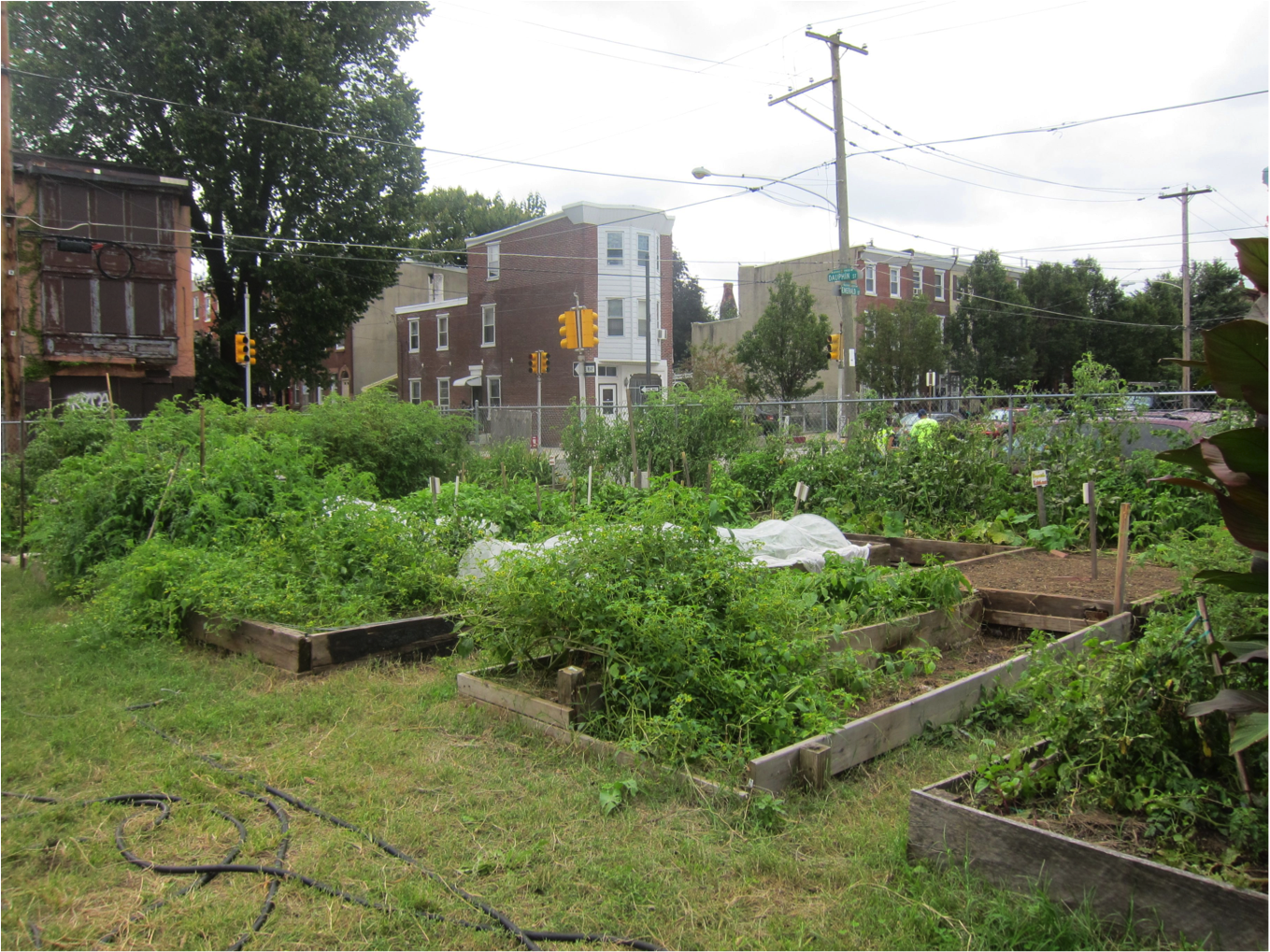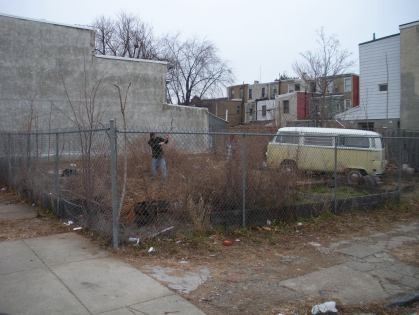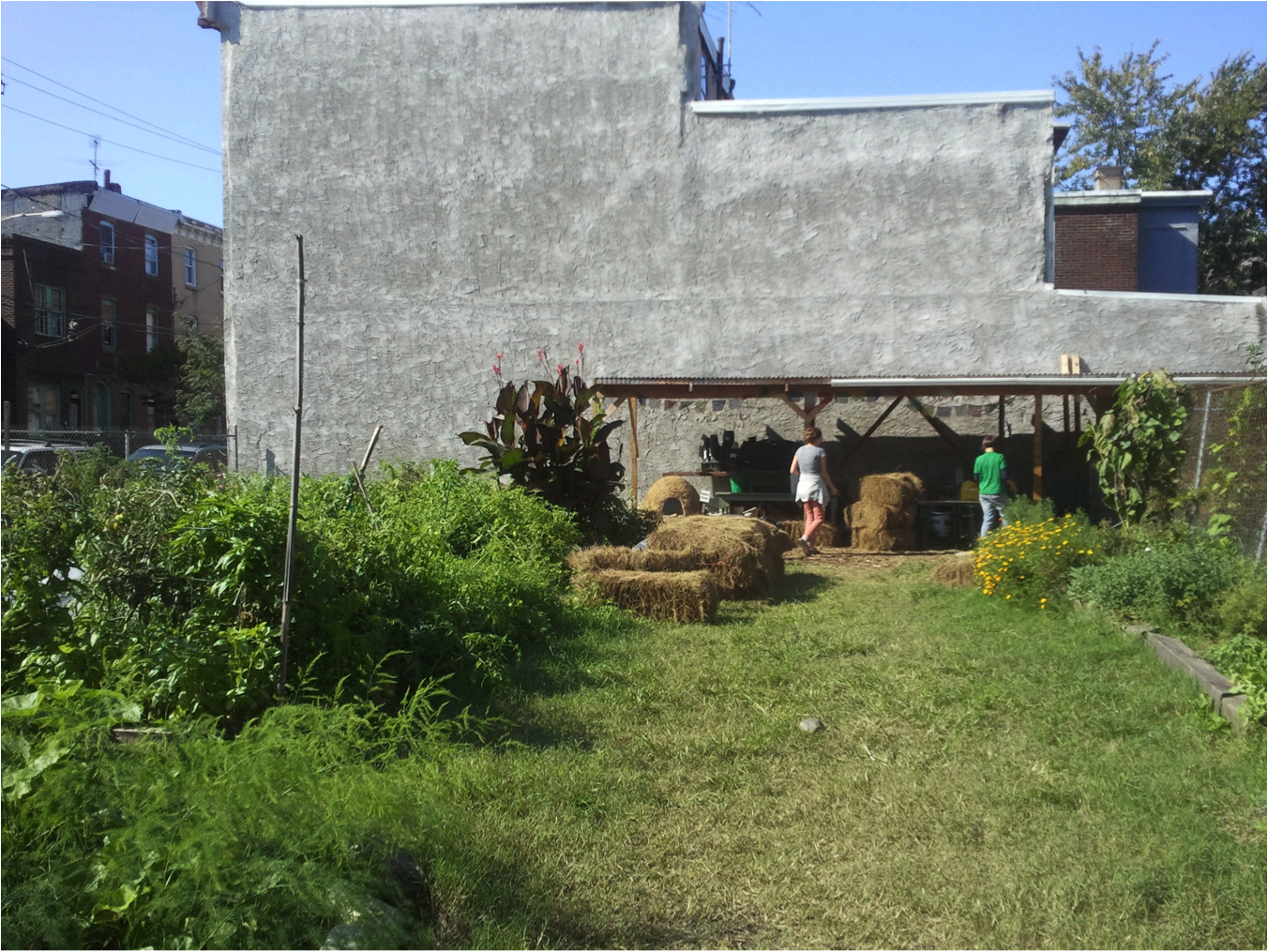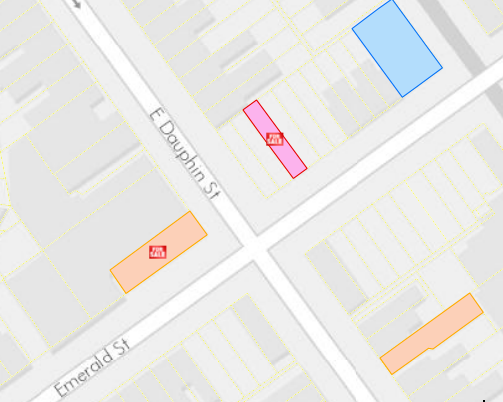Situation Vacant: Emerald Street Urban Farm’s vacant property conundrum

In advance of PlanPhilly’s panel discussion about the city’s vacant land strategies on June 12th, Eyes on the Street is collecting and sharing stories from Community Contributors about vacant property. First up, urban farmer and writer Nic Esposito shares this piece about Emerald Street Urban Farm‘s cultivation of five vacant lots in East Kensington, and how the city’s vacant property reform efforts will shape the fate of this urban farm and the people it serves.
When my wife Elisa purchased a home in Kensington 4 years ago and decided to transform the adjacent vacant land into an urban farm to serve the community, she wasn’t worried about the lot being divided into 5 different parcels. Although she did write letters to all five entities that owned the lots, she was more concerned with removing the abandoned van, the piles of trash and the mattress that apparently was being used by a prostitute to conduct business.

Emerald Street Urban Farm (ESUF) has served the community in so many ways. It’s operated by a group of dedicated community volunteers who tend the land, build farm infrastructure, and organize community days and fundraisers. The only payment we earn as volunteers is the bounty of our harvest. But it’s an ample livelihood for all of the work. Each week we provide many pounds of food to a local soup kitchen as well as Sunday Suppers, a local nonprofit that educates and empowers lower income residents through the love of a Sunday meal.
This may sound impressive, but to me it’s only a small portion of how the farm has benefited our lives and the lives of others. With all of the goodness that the farm has produced, it’s natural to gloss over the fact that the land is on five different parcels. If we could do it all over again we probably would have looked for land that had one owner, which leads to the much easier situation of negotiating one agreement to use the land. But as it often goes with this type of community development, you don’t find the land. It’s the land that finds you.

And this land needed our help. But now as the city is taking action to transfer as many of these parcels as possible to private development, as is evident with the comprehensive property listings on the Redevelopment Authority’s new database, the daunting challenge of negotiating five different land deals looms in the distance.

The ironic part is that many of us involved in ESUF welcome this move from the city. We are completely aware that unsecured vacant houses and trash filled lots are one of the biggest detriments to this city. But unlike the blanket statements of news organizations that have reported on this situation, not all of these lots are vacant, even though on paper that may seem the case. There are plenty of examples of projects like ESUF that exist and must be taken into consideration by the city.
Unlike developers, we don’t have the money to buy all of these lots. And in all honesty, the city is not going to get a fraction of the initial tax revenue that it could get from a developer. But aside from the beauty that our farm creates (and the rising property values that accompanies) the farm also creates a wealth of engaged citizens for the city. I understand that the city needs to attract more investment and grow its tax base. But it can’t afford to squander the resources it already has in its existing citizens. Taking the work that we have done into consideration and giving priority to that work must happen in tandem with the development of our vacant property.
———
Nic Esposito is a Philadelphia urban farmer, writer, and founder of The Head & The Hand Press.
Eyes on the Street is collecting community stories about the effects of vacancy on neighborhood quality of life and community development in Philadelphia. If you want to share your story, send it our way.
WHYY is your source for fact-based, in-depth journalism and information. As a nonprofit organization, we rely on financial support from readers like you. Please give today.




